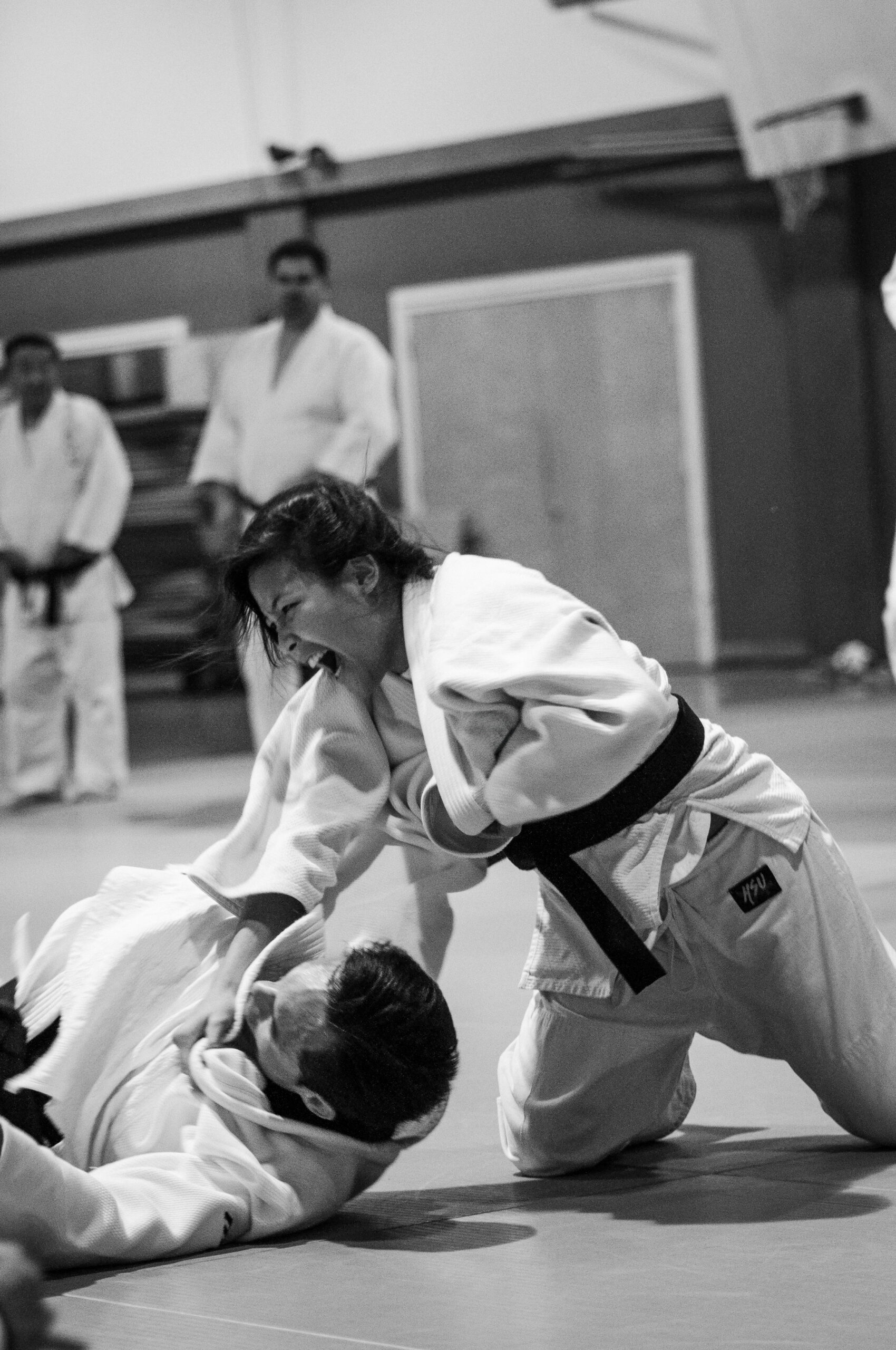Your cart is currently empty!
About Us

Quang “Arik” Dao, Ph.D., is the director of the Kōgi Dōjō judo program, with over 15 years of experience teaching both recreational and competitive judo to teens and seniors. He integrates traditional Japanese techniques with modern European judo practices, continuously enhancing his expertise through clinics and elite training programs both domestically and internationally. A 4th-degree black belt, Dr. Dao is certified by the International Judo Federation (IJF) as a judo instructor and also holds accreditation as a national coach and referee from USA Judo.
In his professional career, Dr. Dao earned a Ph.D. in Industrial Engineering from Purdue University. He currently leads a research lab at NASA’s Ames Research Center, where he mentors undergraduate and graduate students, guiding them toward their academic and career goals.

Sunnie Stone, M.A., CEAS, Sunnie is a 2nd-degree black belt in judo from San Jose State University, with over a decade of competitive judo experience and more than 20 years in athletics and sports injury management.
In her professional career, Sunnie earned a bachelor’s degree in music with a minor in kinesiology and a master’s degree in exercise physiology, both from SJSU. With extensive expertise in sports injuries, therapy, and recovery, Sunnie combines her deep understanding of movement science with her passion for judo to support athletes in achieving peak performance and long-term health.

Professor Amador Torralba serves as the head Brazilian Jiu-Jitsu instructor at Prime Martial Arts, Kogi Dojo’s parent academy, and has dedicated his career to refining and integrating grappling techniques across multiple disciplines.
A highly accomplished martial artist, Professor Torralba holds a 1st-degree black belt in Brazilian Jiu-Jitsu, an 8th-degree black belt in karate, and a black sash in wushu. With decades of experience, he provides technical depth to our judo students (judoka), enhancing their newaza (ground techniques) for both training and competition. His expertise in ground control, transitions, and submissions helps judoka develop a more well-rounded and effective approach to modern judo.

Jennifer Dao, M.A., CTC, is a first-degree black belt in judo. As teaching advisor at Kogi Dojo, she assists in developing engaging and structured teaching curricula for teen and adult students.
Jennifer is a licensed educator, holding a California teaching certification and a master’s degree in education from the University of Southern California. Outside the dojo, she teaches 2nd grade, bringing her expertise in education to both the classroom and the tatami. Her passion for teaching and martial arts helps young judoka build confidence, discipline, and technical skill, fostering growth both on and off the mat.
What is Kōgi Dōjō?
光 (Kō): Light, symbolizing intellectual development
義 (Gi): Righteousness, justice, or integrity.
In addition to cultivating technical excellence in judo, we emphasize intellectual growth (Kō) and moral integrity (Gi) within a supportive and positive training environment. To bring this vision to life, our community upholds the following core practices.
Moral Conduct (ref. IJF Moral Code)
- Be humble: come to the dojo to learn; be unshaken by defeat and unmoved by victory.
- Be respectful: respect everyone inside and outside of the judo community, and most importantly, be respectful to each other.
- Exercise sincerity: offer kind speech, gestures, and friendship with a whole heart.
Safety
- Practice good hygiene: come to practice in clean attire and properly groomed; remove all jewelry before training; cut and file your nails; clean your hands, feet, and body; wear deodorant.
- Maintain a clean training facility: pick-up finger tape and trash; wear sandals while off the mat, and keep sandals off the mat.
- Be observant: maintain awareness of your training environment, and assume responsibility for the safety of your training partners.
- Do not abuse drugs: refrain from recreational drug use or the use of performance enhancement drugs, or any drugs not prescribed by a certified physician.
Discipline
- Be punctual: attend practice regularly; arrive early to allow time for you to prepare and to bow-in with your teammates before beginning practice.
- Focus: listen and follow directions from your instructors.
- Be tidy: wear your belt and judogi properly, checking and adjusting frequently, especially before bowing in and out of each training session.
- Train hard: always give your best effort at practice.

It’s a wolf on a shield, but why?
Kogi Dojo embraces the wolf as its mascot to symbolize the strength, discipline, and unity that define our judo community. Like wolves, we value strategic thinking, adaptability, and relentless perseverance—qualities that every judoka hones on the mat. The wolf’s strong pack mentality mirrors the camaraderie and mutual respect we foster at Kogi Dojo, where every member contributes to the growth and success of the group. As a symbol of loyalty and resilience, the wolf inspires us to pursue excellence together, embodying the true spirit of judo.

